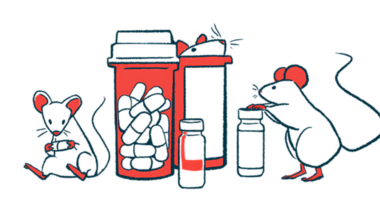Acid from gut bacteria may become potential treatments for MG: Study
Butyric acid or butyrate found to restore immune cell function in lab
Butyric acid from gut bacteria, or supplementation with its salt form butyrate, could become potential treatments for myasthenia gravis (MG) by working to restore the function of immune cells that limit the production of disease-causing antibodies.
That’s according to the findings of a new study in human cells and mice, titled “Gut microbiota-derived butyrate restores impaired regulatory T cells in patients with AChR myasthenia gravis via mTOR-mediated autophagy.” The study was published in the journal Cell Communication and Signaling.
“We propose that gut bacteria-derived butyrate has potential therapeutic efficacy against … MG by restoring impaired [regulatory T-cells, known as] Tregs,” the researchers wrote.
While the team suggested their findings could possibly lead to new treatments for MG, they stressed that more research is needed.
Focusing on the gut to develop new treatments for MG
In addition to helping break down some foods, a healthy gut microbiota — the collection of all microbes found in the gut — has a role to play in training the immune system. However, earlier work has shown that the gut of MG patients may be home to an unbalanced microbiota.
MG is most often caused by self-reactive antibodies that the immune system produces against a protein called acetylcholine receptor, or AChR. Those antibodies impair the way nerve cells communicate with muscle cells, leading to muscle weakness and fatigue.
A type of immune cells called regulatory T-cells, or Tregs, can help prevent autoimmune disease by limiting the production of self-reactive antibodies. In MG, however, there are fewer Tregs and they don’t work as well to keep the body’s immune response under control.
While the gut microbiota and their byproducts help Tregs grow in number and improve how they work, it’s unclear whether an unbalanced gut microbiota may be a basis for the lower number of Tregs found in the blood of MG patients.
To learn more, the team of researchers, from China, compared the gut microbiota of 22 MG patients who tested positive for anti-AChR antibodies with that of 11 healthy individuals. They also checked the levels of short-chain fatty acids (SCFAs) — byproducts released from gut bacteria into the blood.
Clostridia and Roseburia bacteria, both known to contribute to the production of SCFAs, were less abundant in fecal samples of MG patients than in those of healthy individuals. One SCFA, called butyric acid, was found at significantly lower levels in the blood of MG patients.
To check if butyric acid is important for Tregs to grow and function, the researchers collected naïve CD4-positive T-cells, which can develop into Tregs, from MG patients.
When naïve CD4-positive T-cells were grown in the lab under Treg-polarizing conditions — that is, under conditions that would favor their development into Tregs — the proportion of Tregs markedly increased in the presence of increasing concentrations of butyrate.
Additional statistical analyses also demonstrated that in the blood of MG patients and healthy individuals, the higher the levels of butyrate salt, the more circulating Tregs there were.
In Tregs, butyrate activated autophagy, the process by which cells break down and destroy abnormal proteins, including antibodies. Butyrate also increased the levels of cytotoxic T-lymphocyte-associated protein 4 (CTLA-4), a protein receptor that is key for the immunosuppressive function of Tregs.
Researchers tested butyrate in mouse model of MG
Next, researchers turned to a mouse model of experimental autoimmune MG, in which the animals were given either butyrate or water to drink. Compared with mice that were given water, those on butyrate had lower clinical scores for MG, indicating less severe symptoms.
Those mice also had lower blood levels of anti-AChR antibodies and more Tregs in the spleen, an immune organ where T-cells develop. Further, mice on butyrate ran significantly longer distances in an open field, indicating less muscle weakness or fatigue.
“Butyric acid produced by gut microbiota can effectively promote Treg differentiation and suppressive function,” the researchers wrote, noting that it may do so by activating autophagy.
“Butyrate shows therapeutic potential in the treatment of MG. However, further evaluations are needed in this regard,” the team concluded.








